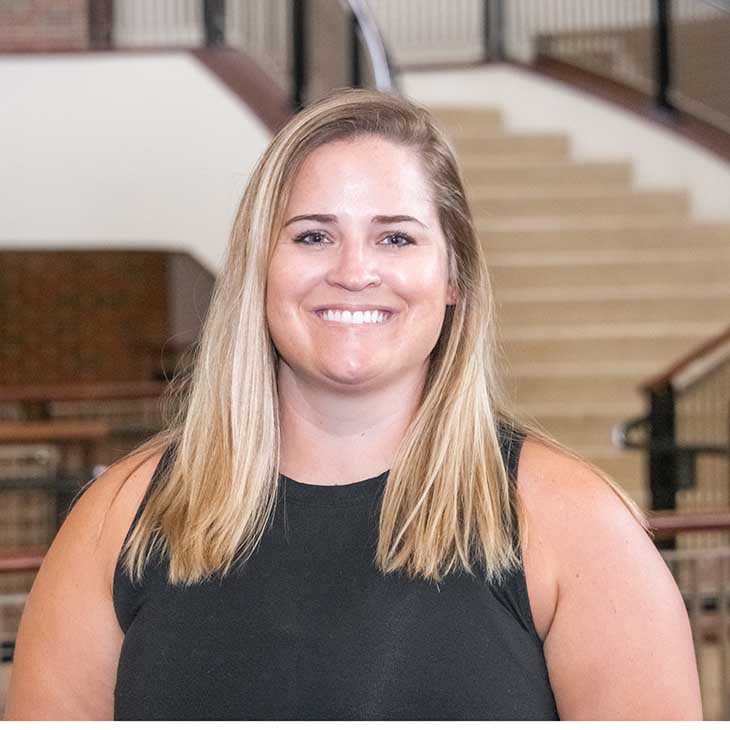
Meet Dr. Bree Baker, assistant professor in the School of Kinesiology, Applied Health and Recreation
Monday, November 8, 2021
Media Contact: Katie Lacey | Communications Specialist | 405-744-9347 | katie.l.lacey@okstate.edu
Dr. Bree Baker is an assistant professor in the School of Kinesiology, Applied Health and Recreation and is also the director of a research lab on campus called the MAAX Lab where she conducts research on the effects of muscle and bone strength. After spending much of her career in Colorado, Baker arrived at Oklahoma State University in 2021. She welcomes and encourages connections from across campus and with non-academic and community entities to learn more about the research she is conducting.
Why did you choose to go into this field?
As a college athlete and coach, I was always interested in musculoskeletal health and injuries and how they influenced performance. This was amplified through my graduate studies as I began to work with military personnel and professional athletes. I have found the most personally fulfilling group that I work with now are older adults. They too have a variety of musculoskeletal injuries that affect their quality of life and we can help.
What is the most interesting part of your research?
Everyone knows that muscles get stronger with exercise or become weaker with physical inactivity, but most people don’t know that the bones are equally dynamic. The bone and muscle are intricately connected beyond their physical proximity. Bone and muscle signal each other during times of stress to help protect each other. We call this muscle:bone crosstalk and it is an essential aspect of how exercise can improve the strength of the whole musculoskeletal system and one’s body.
Why did you choose to come to Oklahoma State University?
The people! I have moved many times and lived in many places but the people in Stillwater and Oklahoma as a whole are special. My home department (Kinesiology, Applied Health, and Recreation) is filled with faculty, staff and students who are amazing at their jobs while also being kind, caring and funny. These people make me better everyday.
Can you share more about the MAAX Lab and how have you found a purpose working there?
The MAAX lab is an acronym for what we study — Musculoskeletal Adaptations to Aging and/or Exercise. In general, our group studies how to improve musculoskeletal health and reduce injuries in clinical and athlete populations. For instance, many older adults are afraid to fall and this negatively impacts their quality of life, but exercise training with us can improve muscle and bone strength, balance and self-confidence to help them take their life back. We also work with two types of athletes, competitive and tactical. The competitive athletes we research include the Oklahoma City Thunder and OSU Athletics to improve performance and reduce injury risk. The tactical athlete groups are mainly OSU and Stillwater first responders, with our ultimate goal to keep them as safe as possible while they work to serve our communities.
What is your teaching style?
Teaching, like coaching, is incredibly rewarding because of the relationships you get to build with students. I aim to cultivate a learning environment in the classroom and lab that is welcoming, safe and sparks curiosity. I try to make lectures, labs and the research process fun, interactive, and rooted in real-world problems that allow students to get valuable experience for their future careers.
What else are you involved in outside of being an assistant professor?
I enjoy going to lots of OSU sporting events but my favorites so far include football, softball and soccer. I like to do anything outside — going to tailgates, camping and sitting on a patio with good friends.
